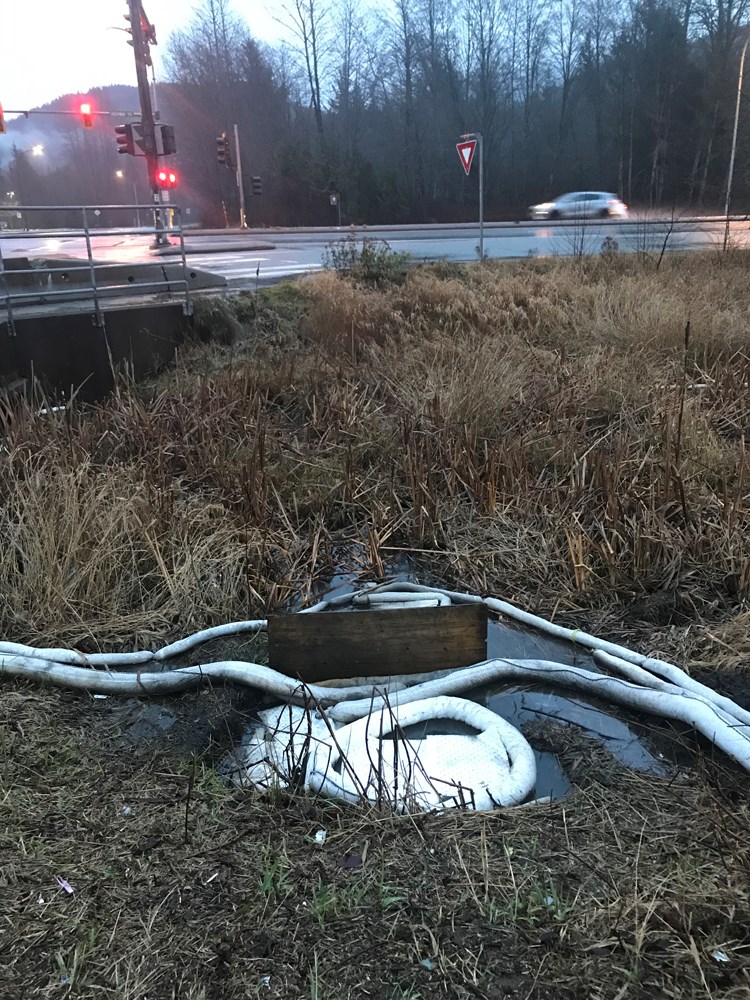If you noticed some paper-towel looking material in the ditch along Highway 99 at Industrial Way in front of Tim Hortons, it isn't litter.
The District of Squamish tells The Chief that during storm main inspections in September, District staff discovered a sheen of "petroleum product" within a stormwater drain in the Industrial Park.
The main is the large storm pipe that runs along under the road.
"This was discovered via CCTV cameras, which is investigative work we do in our mains prior to flushing," said director of engineering Chris Wyckham in an email to The Chief.
A District crew immediately began maintenance of the storm pipe and the traces of the substance in the ditch were cleaned up, he added.
Booms were placed in the ditch and have remained in place since as a precaution.
"The good news is that staff have been checking the access chambers to the main and the absorbent booms regularly since the main was cleared, and are not seeing any new signs of contamination. We will continue to monitor this area for the foreseeable future."
Though they have investigated, staff don't know exactly where the product in the system came from.
The storm system is fed by a variety of catch basins in the Industrial Park.
According to Wyckham, District employees visited all the businesses in the area to inspect their containment of products such as oil and diesel, and to make sure there are proper processes in place to protect the environment.
Starting in the new year, the District will be doing some education in the community.
"It’s important that the community realizes that the vast majority of our catch basins end up in sensitive habitat and that it’s the responsibility of the property owner or lessee to prevent contamination resulting from their property or business," Wyckham said.
According to the Canadian Wildlife Health Co-operative, all plants and animals are impacted by spilled oils in their habitat.
Oil doesn't become diluted but remains on the surface of the water.
"Petroleum oils spilled into the environment can affect organisms by direct physical coating, by altering essential elements of the habitat and by direct toxic effects of chemicals in the oil," reads the Co-operative website.



